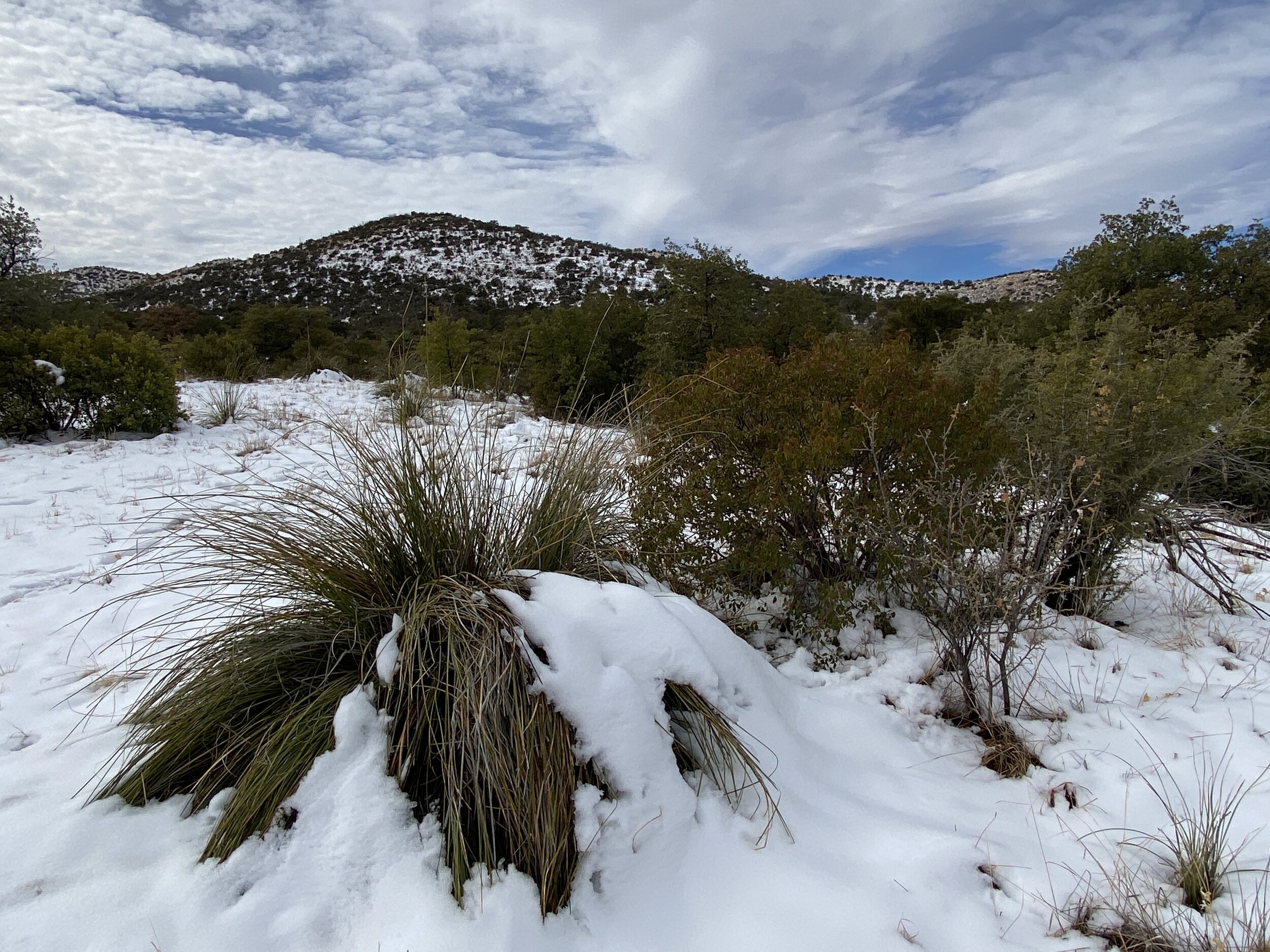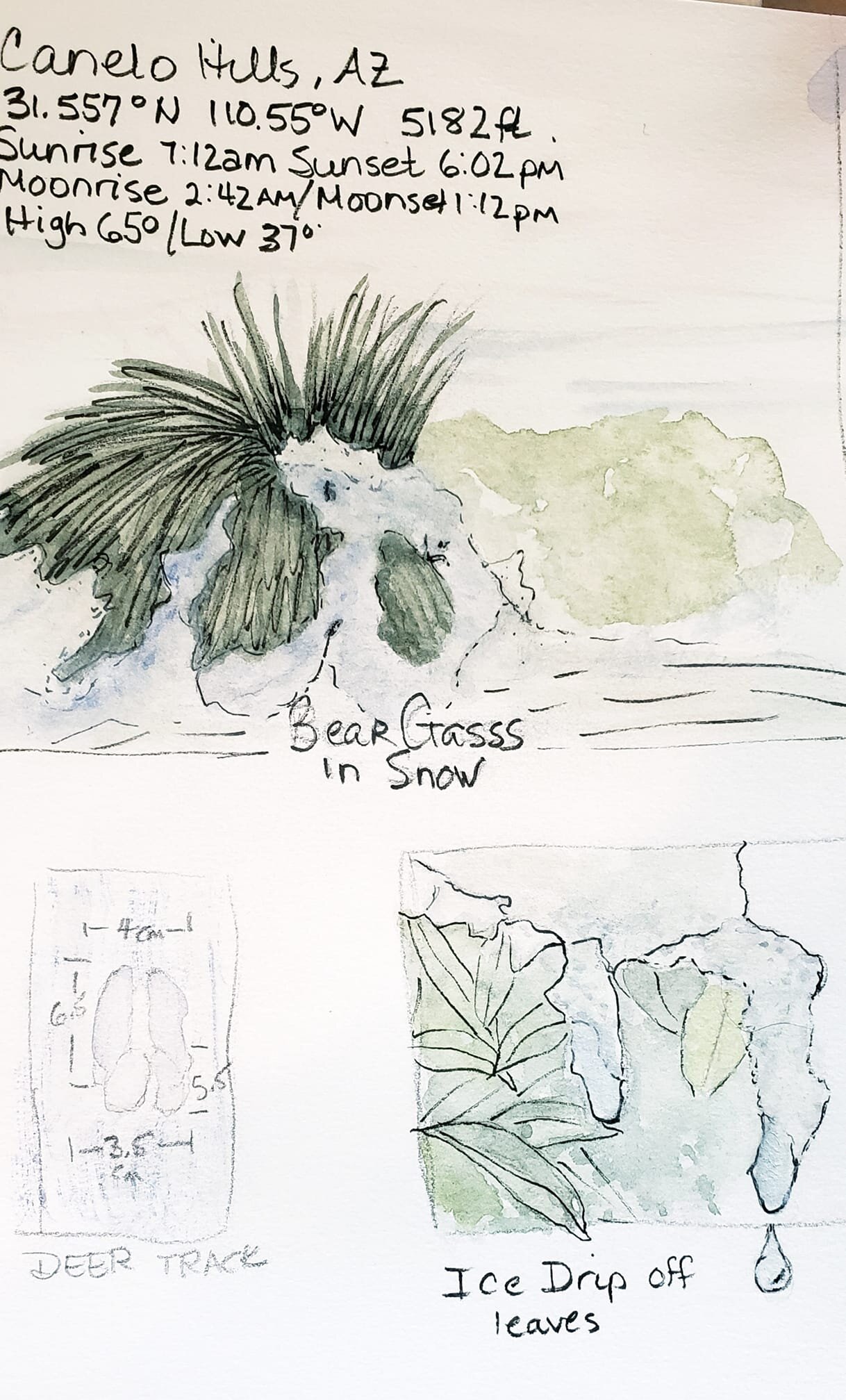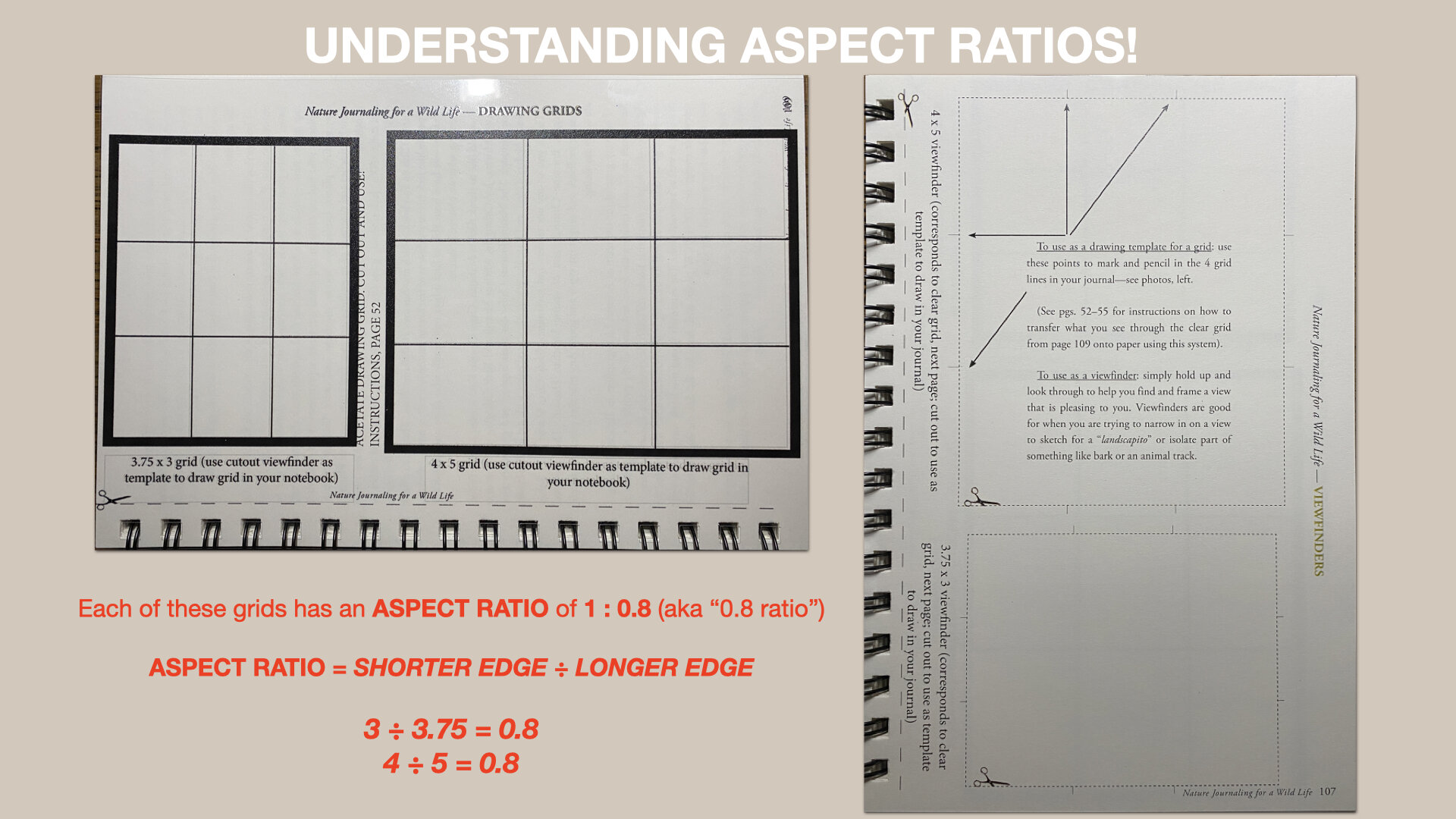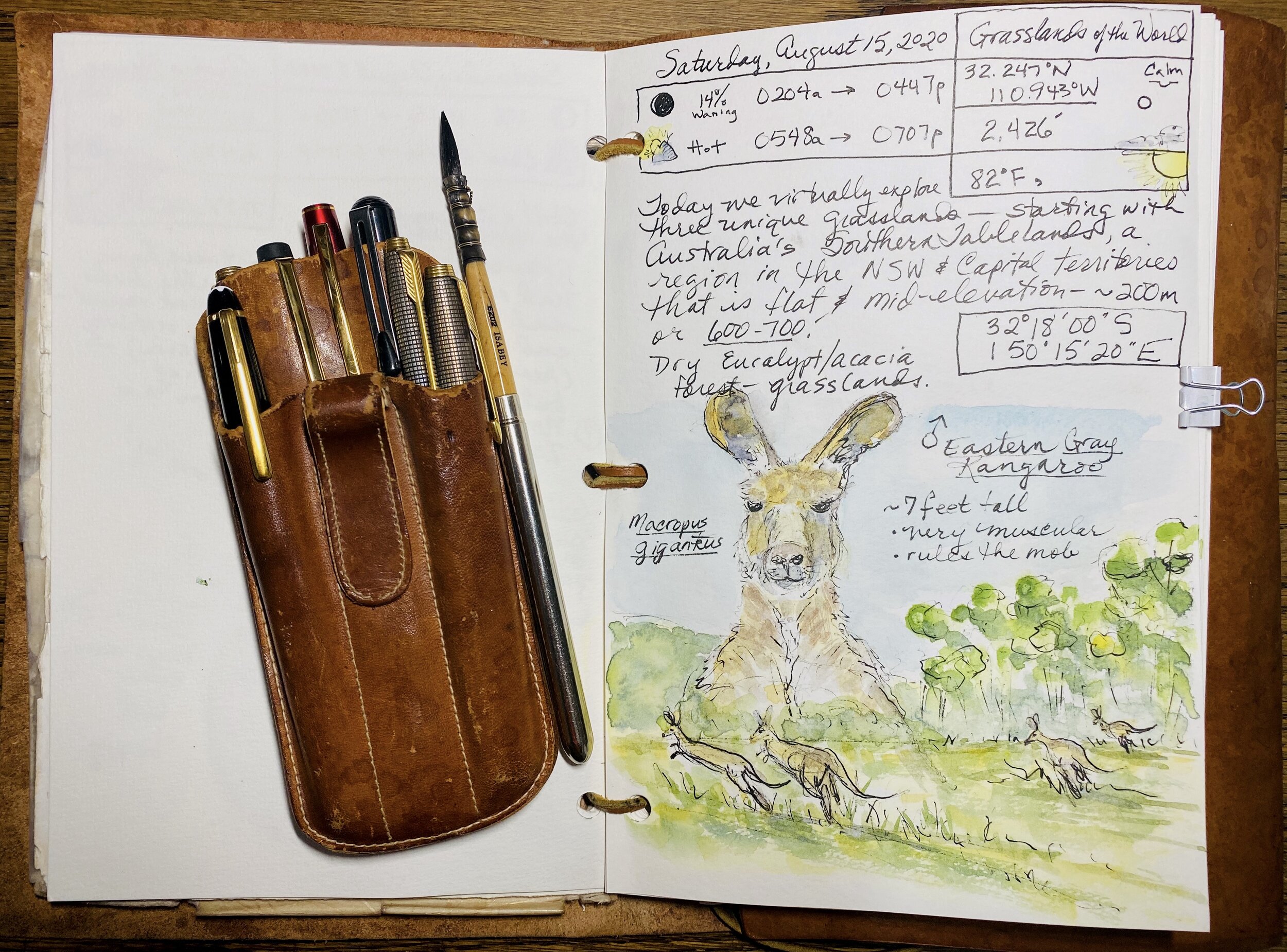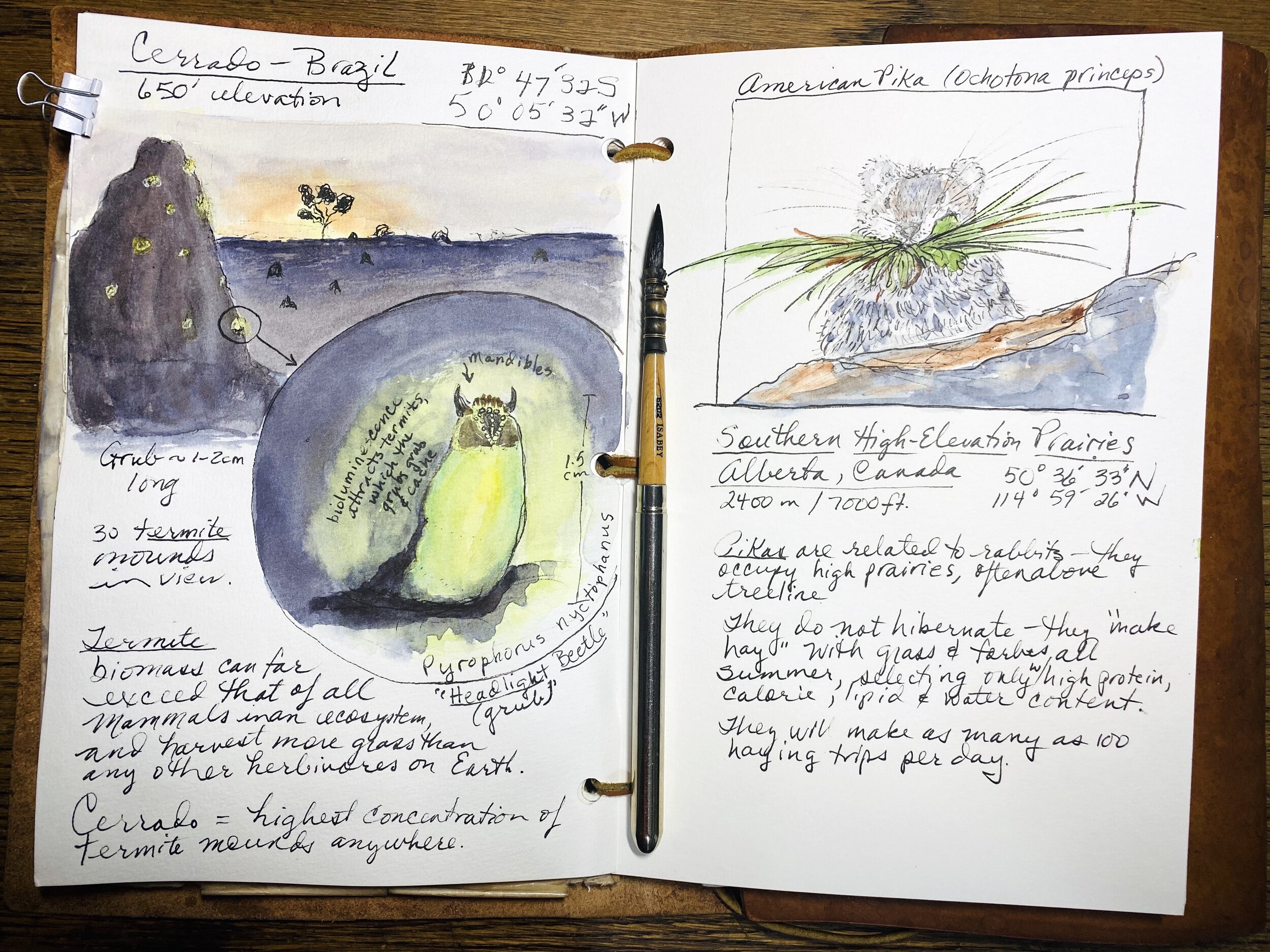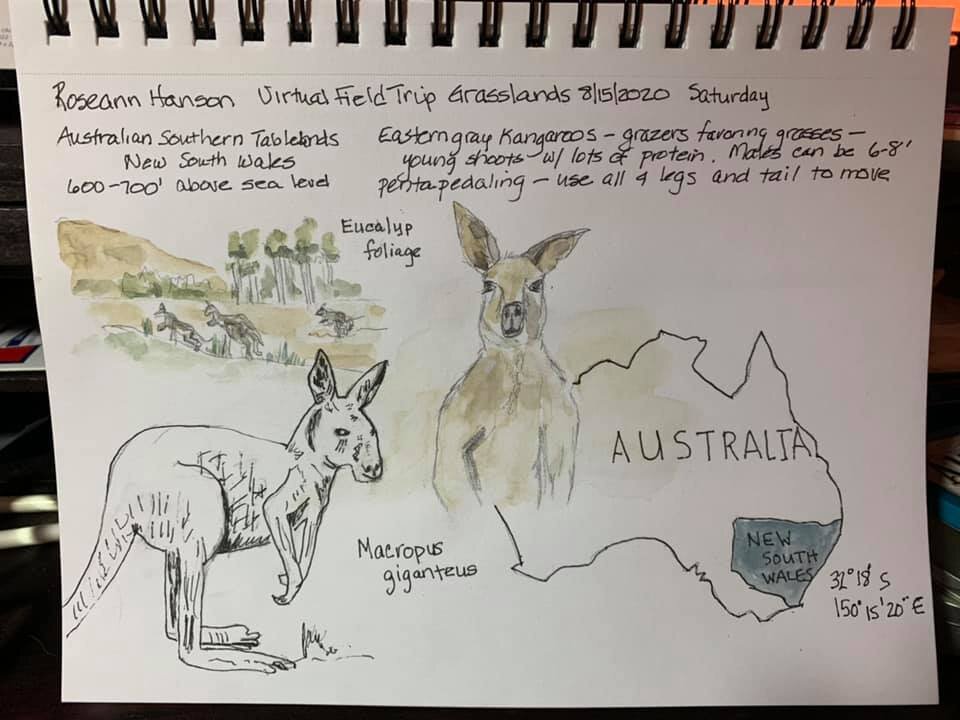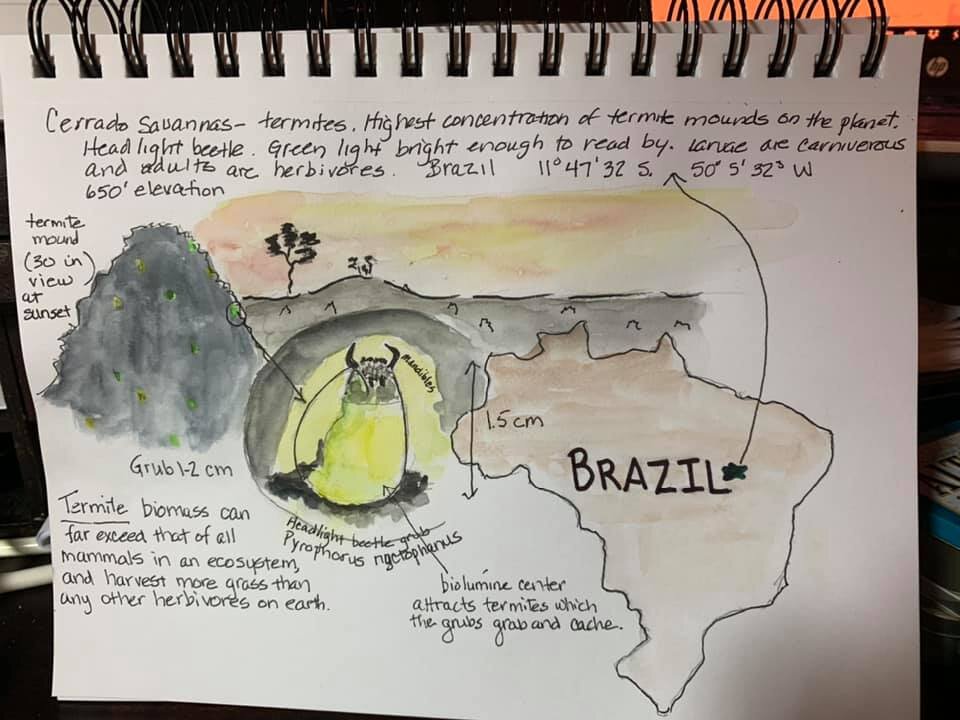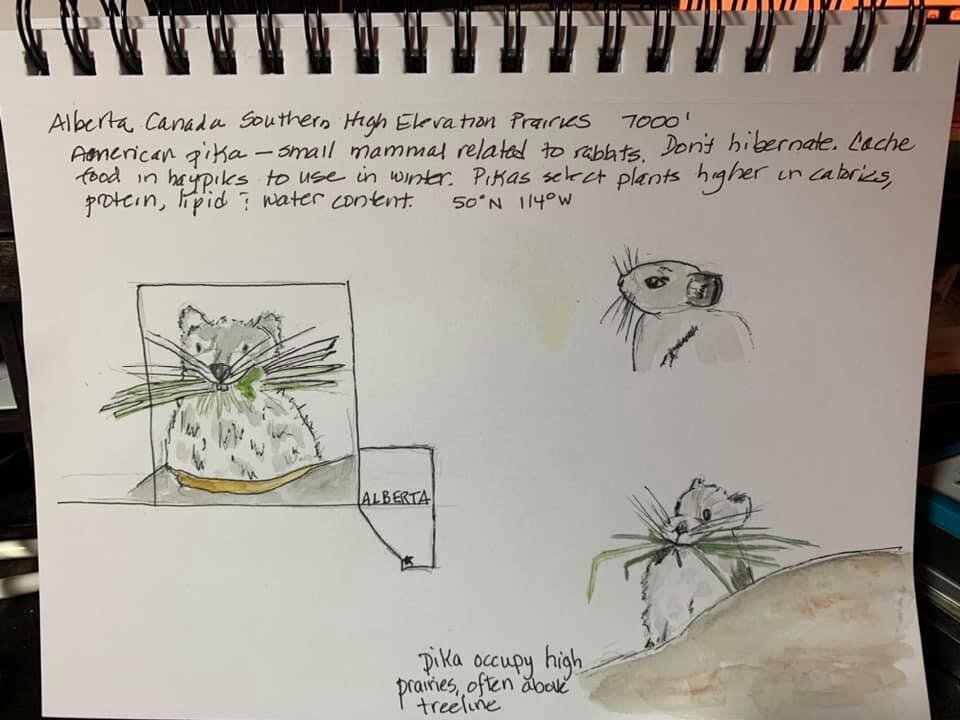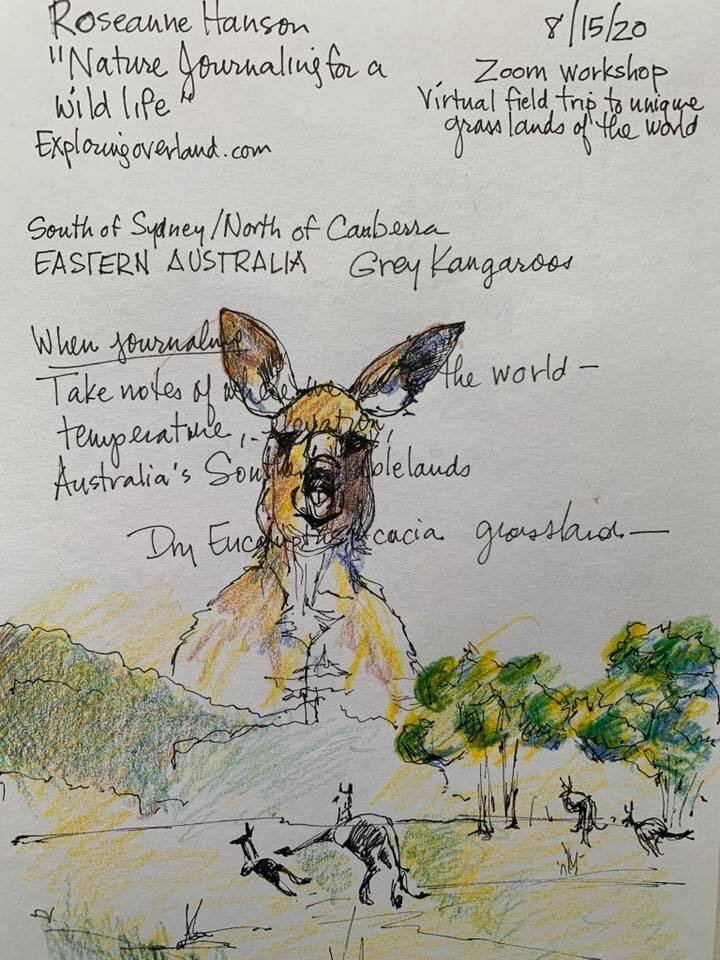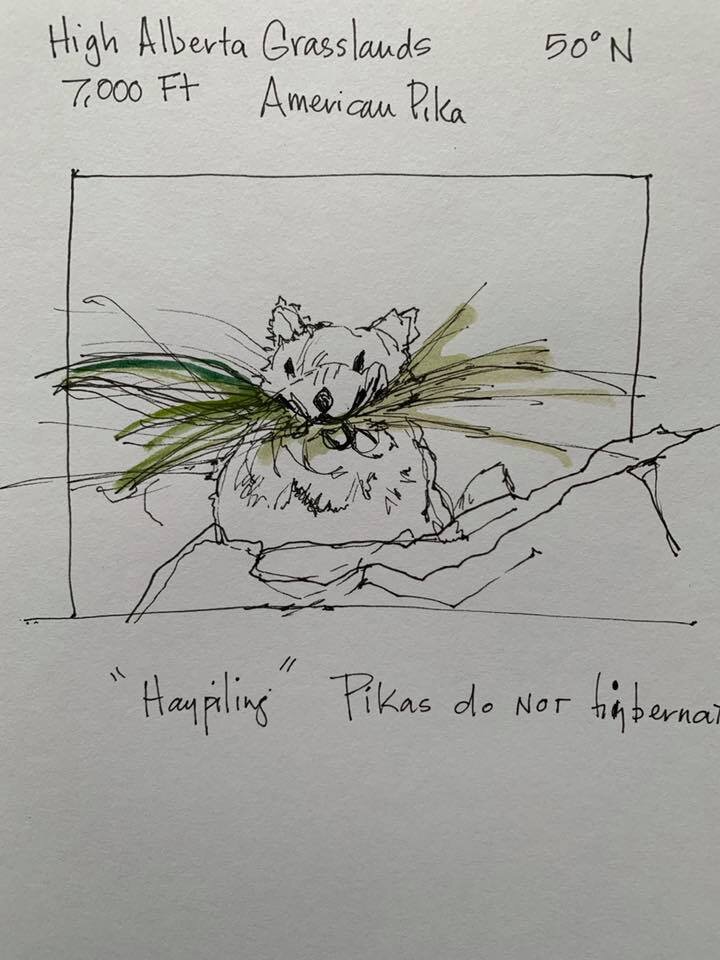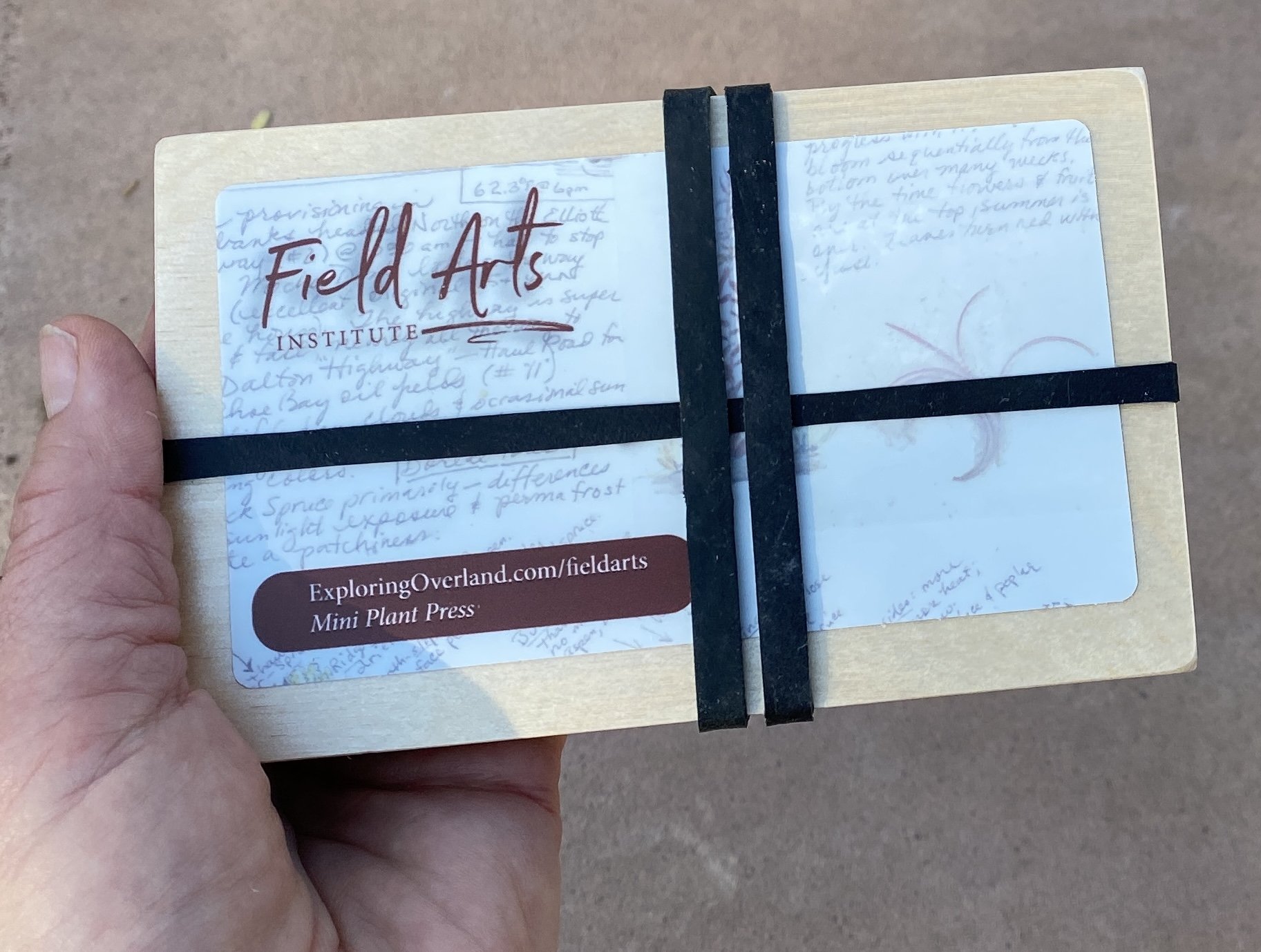Virtual Field Trip: Winter Wonderlands
Join me on a virtual field trip sketching winter wonderlands around the world! Experiment with different ways to represent snow and ice . . . from the comfort of your warm studio!
We’ll learn about wavelengths and why snow is white and glaciers are blue; explore using blue for shadows in show; practice winter “colorways;” how to represent animal tracks; and sketch some icicles.
Sketch along or just observe, I’ll narrate as I go to demonstrate why I choose to focus on what subjects and how to quickly capture them in your field notebooks and nature journals.
If you’re shy, don’t worry—we don’t require anyone to share their work and you can remain completely anonymous and worry-free!
Length: 2 hours
Resources from the Workshop
WHAT COLORS?
French Ultramarine Blue - granulating, makes lovely grays by mixing with Burnt Sienna. Also makes beautiful snow-shadow and sky colors.
In my mini triad palette Daniel Smith (CMY = cyan, magenta, yellow) plus two extras —
Manganese Blue Hue
Quinacridone Rose
Aureolin Yellow (Cobalt Yellow PY40)
Burnt Sienna
Indanthrone Blue
Other useful colors:
Readymade grays - Payne’s Gray or Jane’s Gray (which is French Ultramarine and Burnt Sienna already mixed).
Fun - Shadow Violet and Moonglow, are more purpley grays.
PRACTICING WINTER COLORWAYS WEBLINKS
Study in Blue, by Scott Kranz Photography:
https://www.scott-kranz.com/landscape-portfolio
Lake Solitude, Grand Tetons, Wyoming:
Kenai Fjords, Alaska:
CANELO HILLS VIRTUAL FIELD TRIP IN 360-DEGREE VIEW:
https://360exploring.s3-us-west-1.amazonaws.com/WinterWonderland/output/index.html
METADATA AND NATURE DATA for CANELO HILLS, SOUTHEASTERN ARIZONA, USA:
31.557 degrees N
110.55 degrees W
5,182 feet
Sunrise 7:12AM / Sunset 6:02PM
Moonrise 2:42AM / Moonset 1:12PM
High 65 / Low 37
Clouds: Altocumulus “mackerel” sky
Original pages by Roseann, completed onsite during the real field trip in January.
Virtual Field Trip Pages by Roseann
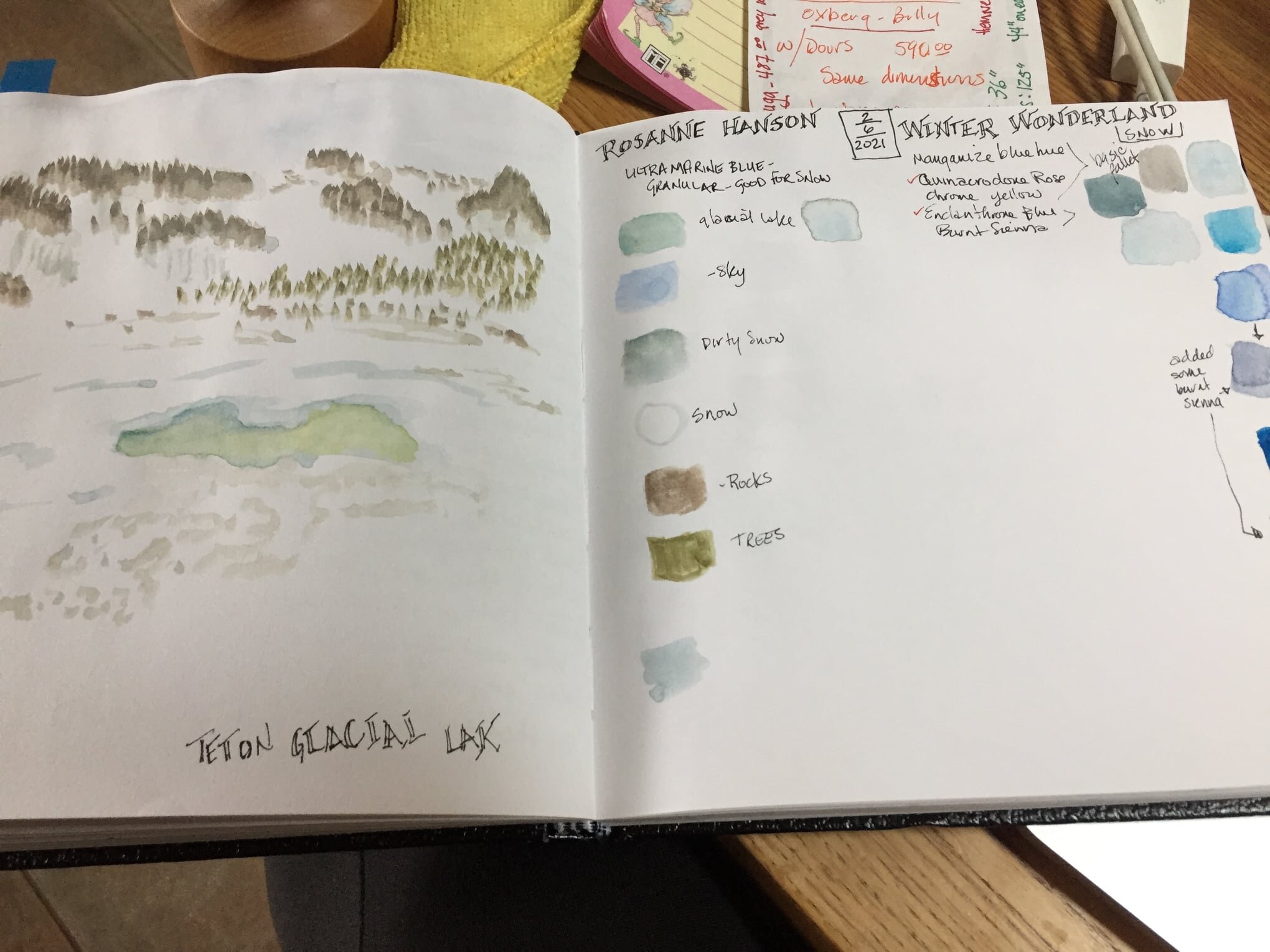
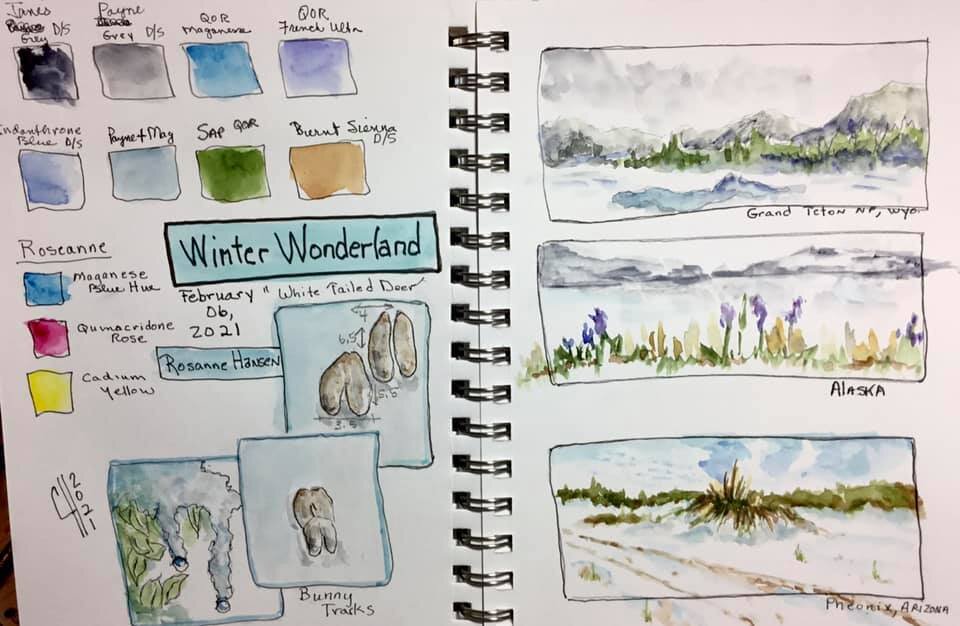
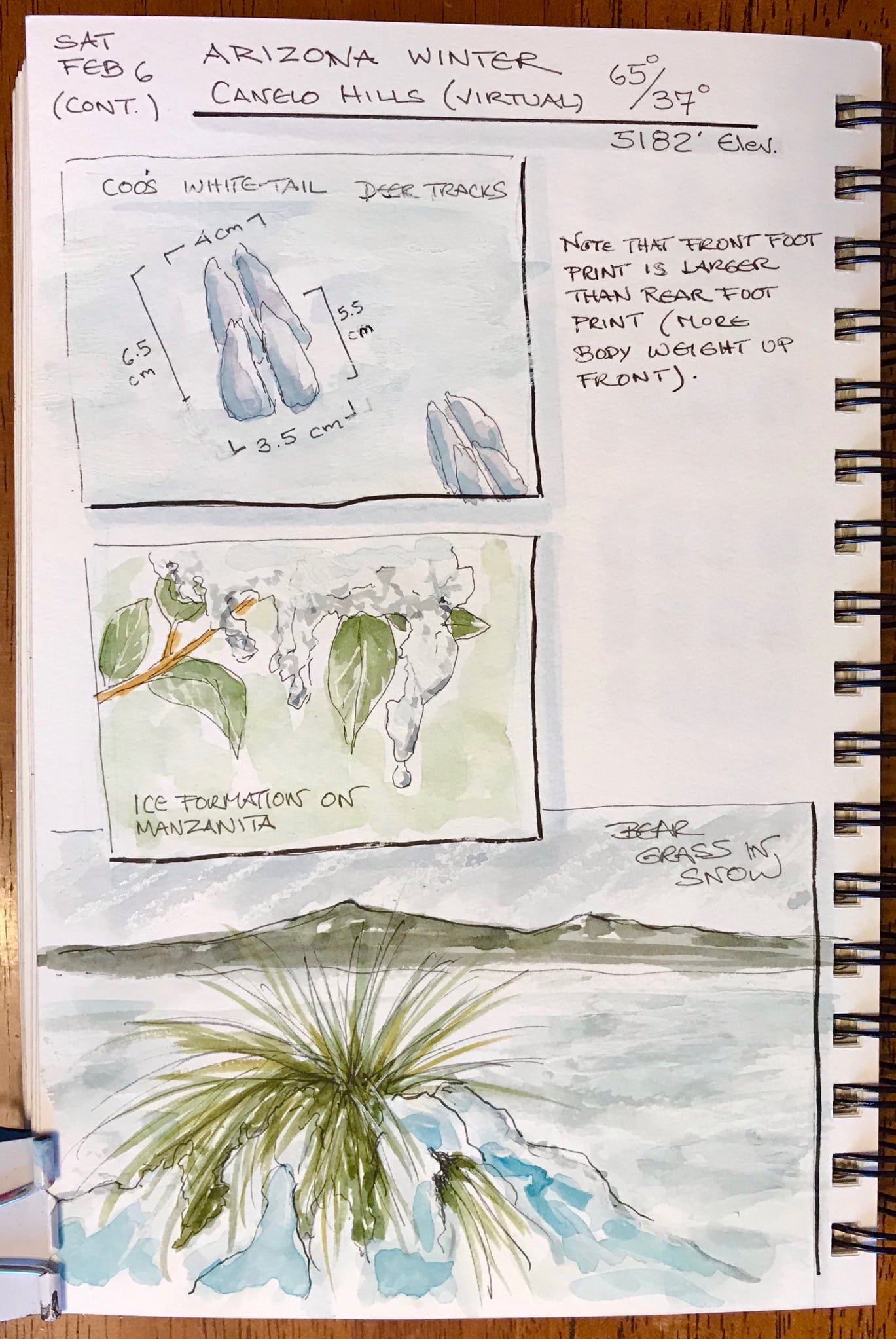
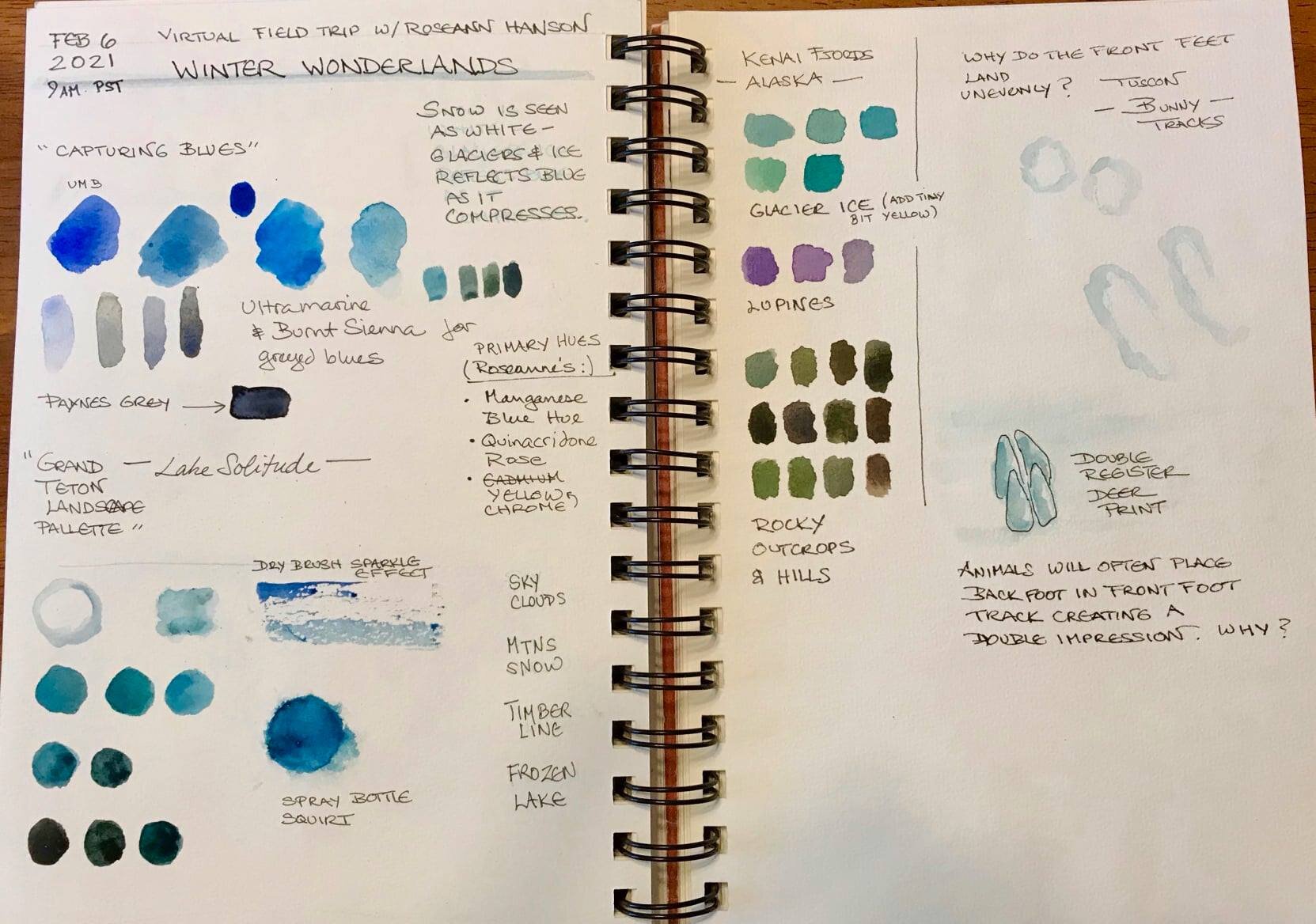
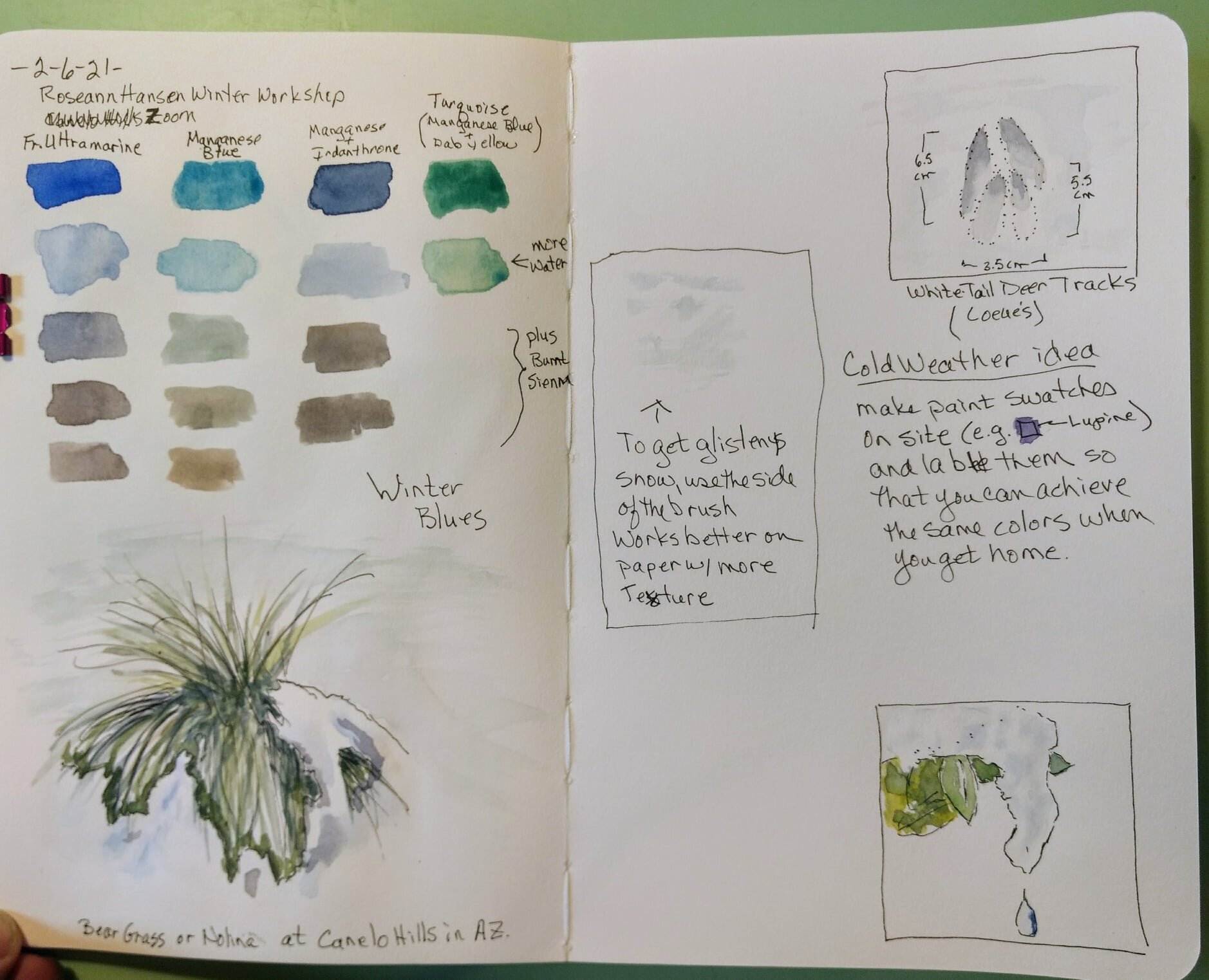
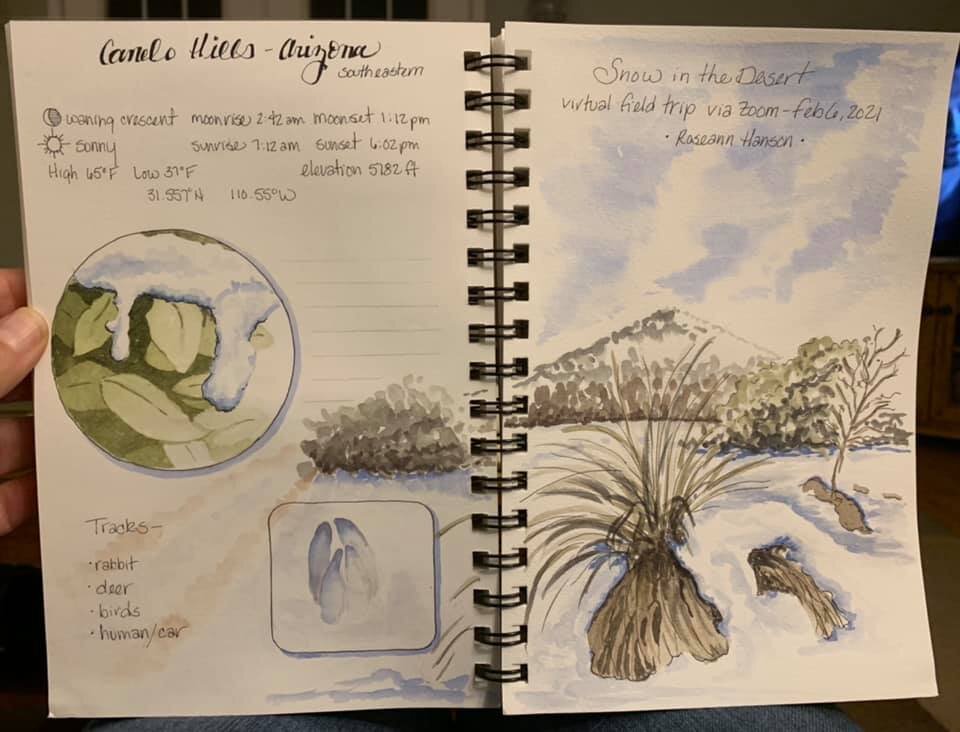
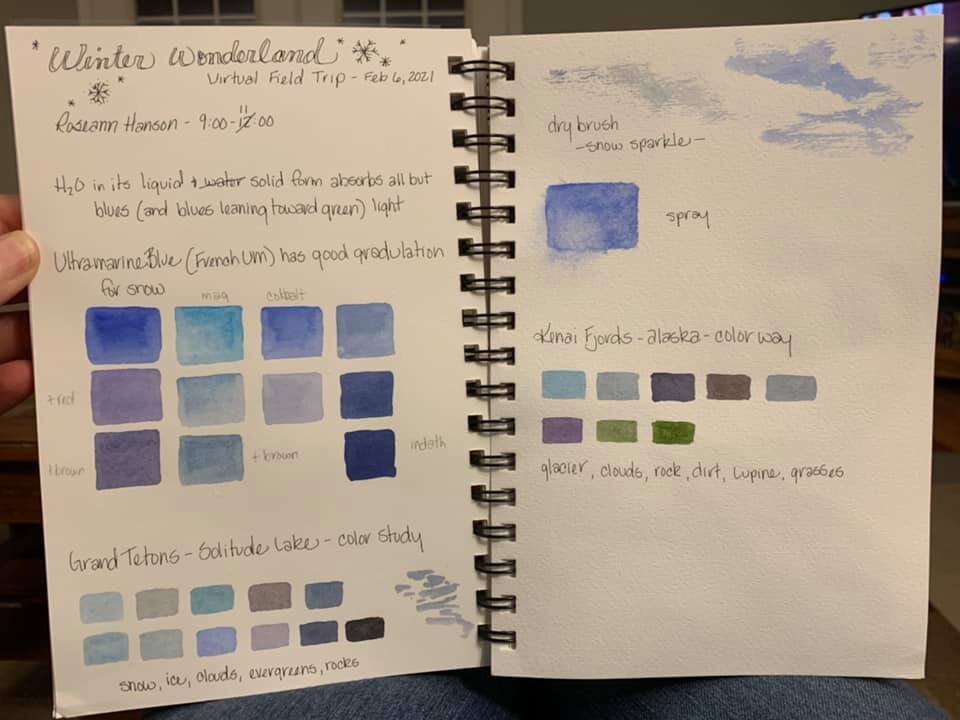
Support free tutorials! Click to contribute to the Tip Jar!
Using Grids: 3D cube landscapes and more
Join me for a free online workshop on how to draw “3-D” landscape cubes — in which you envision taking a giant cutter and pulling a cube out of a landscape, showing the sliced edges and details such as soil and creeks and roots (see here and here for examples). John Muir Laws details them in his wonderful book The Laws Guide to Nature Drawing and Journaling.
These are not easy to do— I struggled with these complex drawings “live” in the field. Where to place the cube, how to envision placing the elements correctly. I always drew mine from photos, then actually printed them and sketched the cube over the photo, or used Photoshop to put a cube over the digital photo.
But with a fun new tool ( the new clear Perspex Palette-Easel ) I will show you how to easily capture a very fun view of a landscape. Make your own (I’ll include instructions), or order one from my shop ($13 with a dry-erase marker or $12 without).
Length: 2 hours
Resources from the Workshop
IMAGE FOR PRACTICE DRAWING GRID LANDSCAPITO
IMAGE FOR PRACTICE-DRAWING CUBE LANDSCAPE
METADATA AND NATURE DATA for ROMERO POOLS, SANTA CATALINA MOUNTAINS, TUCSON, ARIZONA, USA:
32.414359 N, -110.872213 W
3713 feet elevation
Sunrise 0722 am
Sunset 0529 pm
Moonrise 0136 pm
Moonset 0258 am
Moonphase 75% illumination / waxing
High / Low temperatures - High 63/ Low 45 (degrees F)

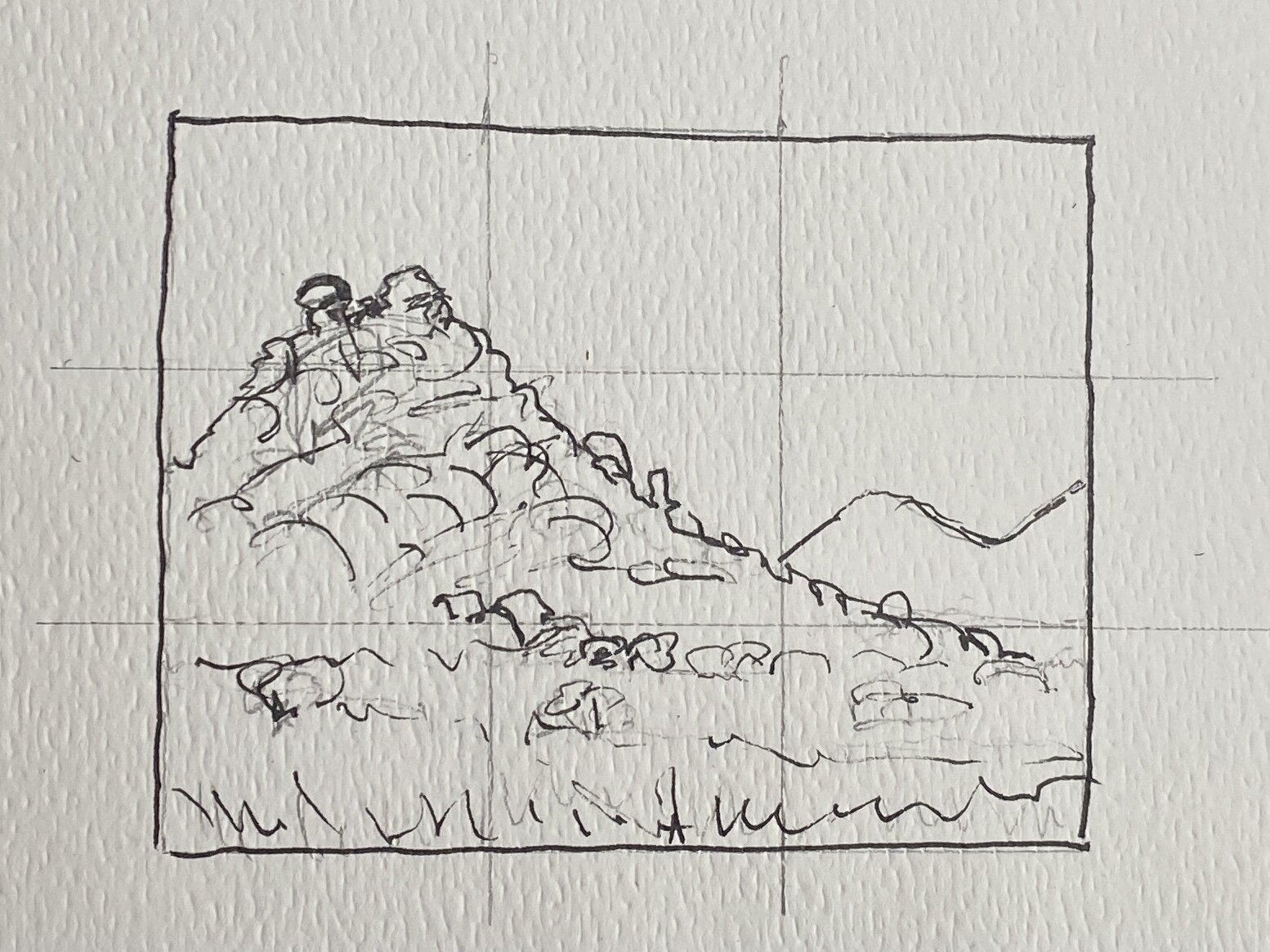
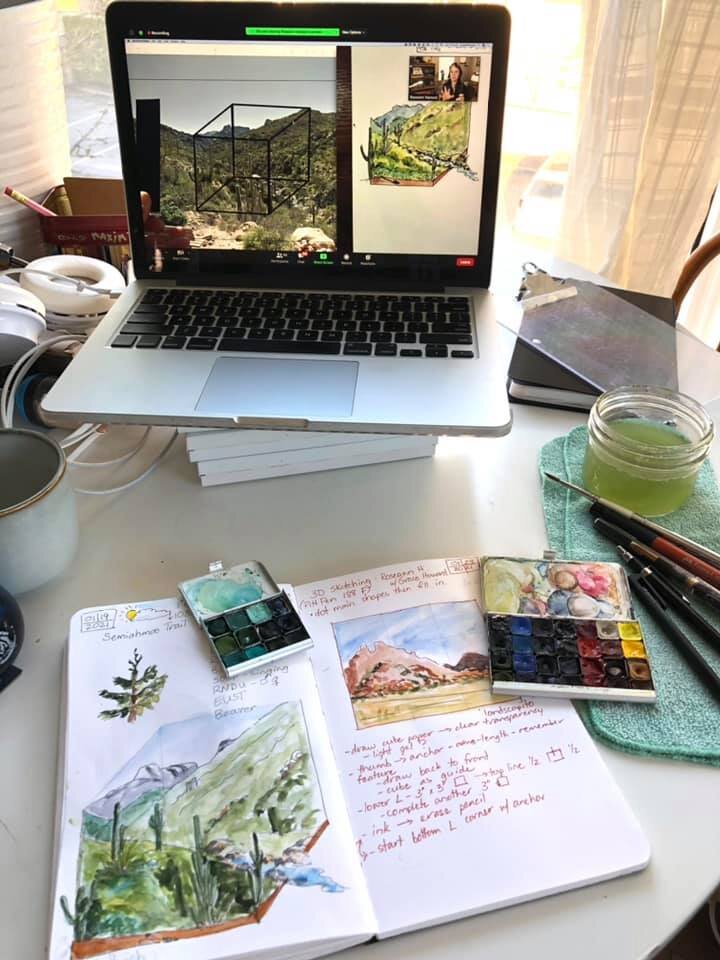
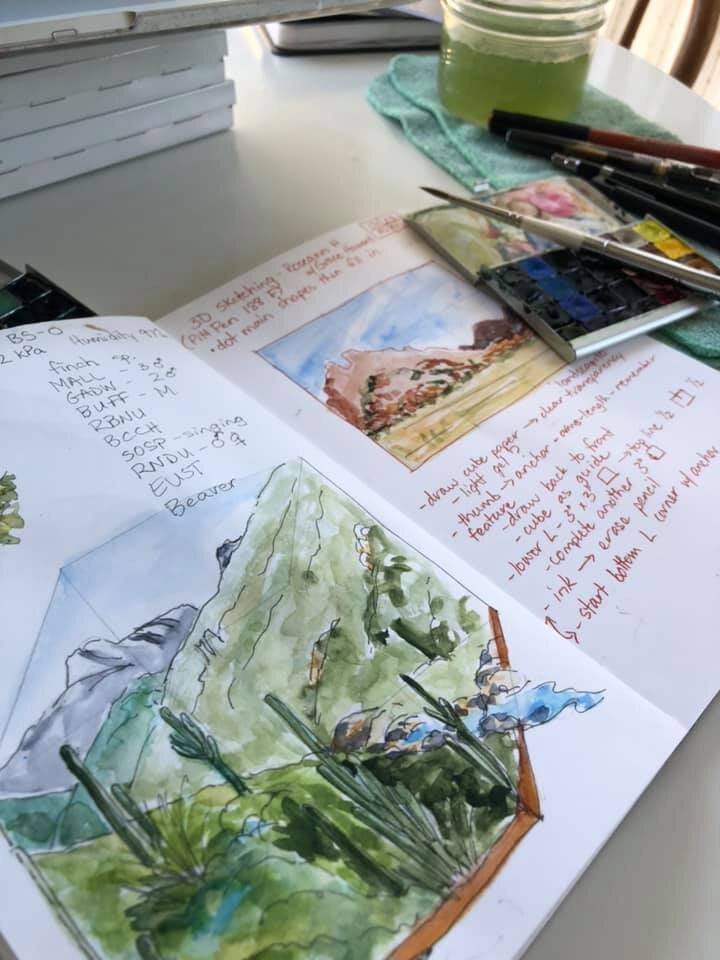
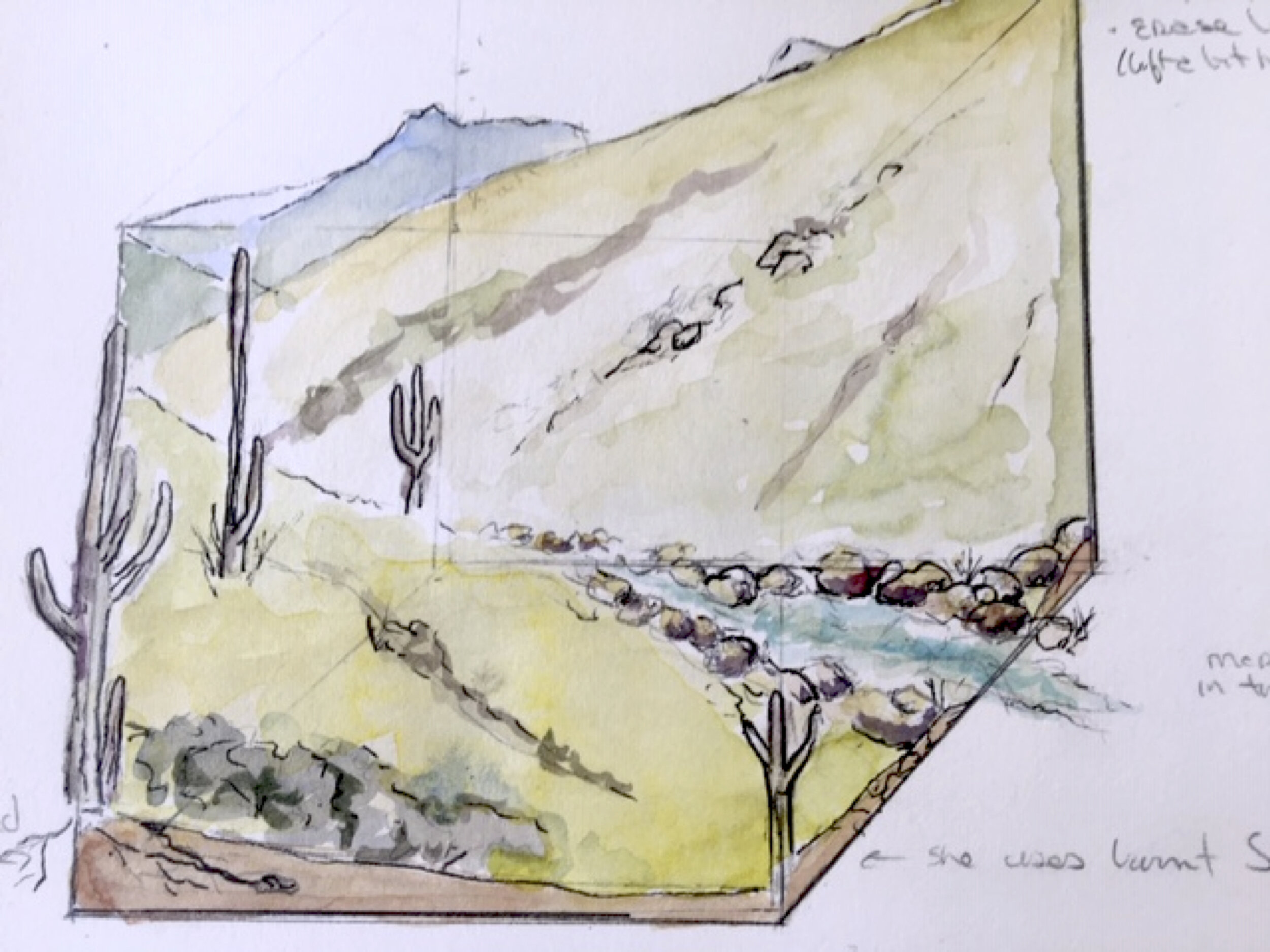
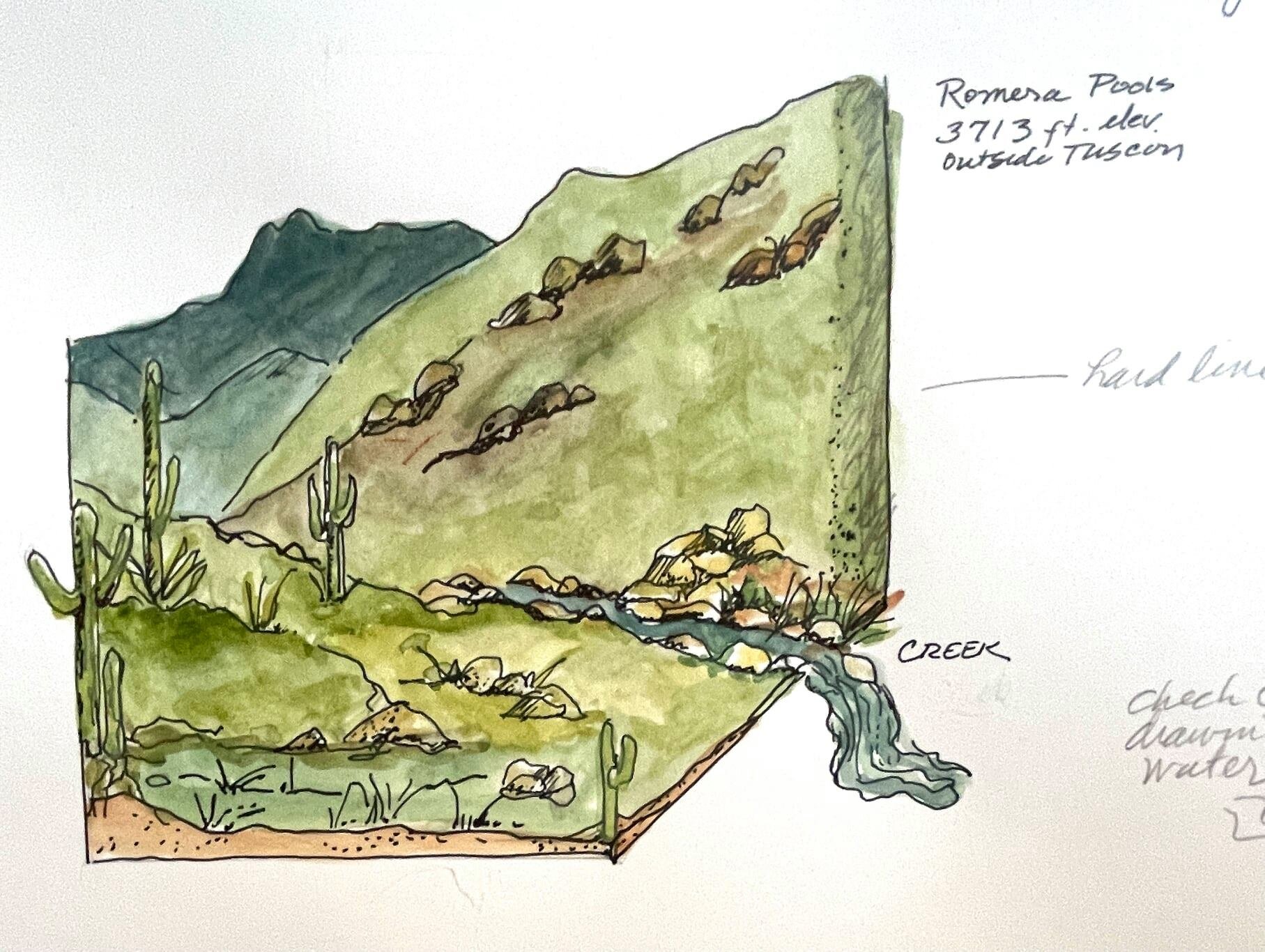

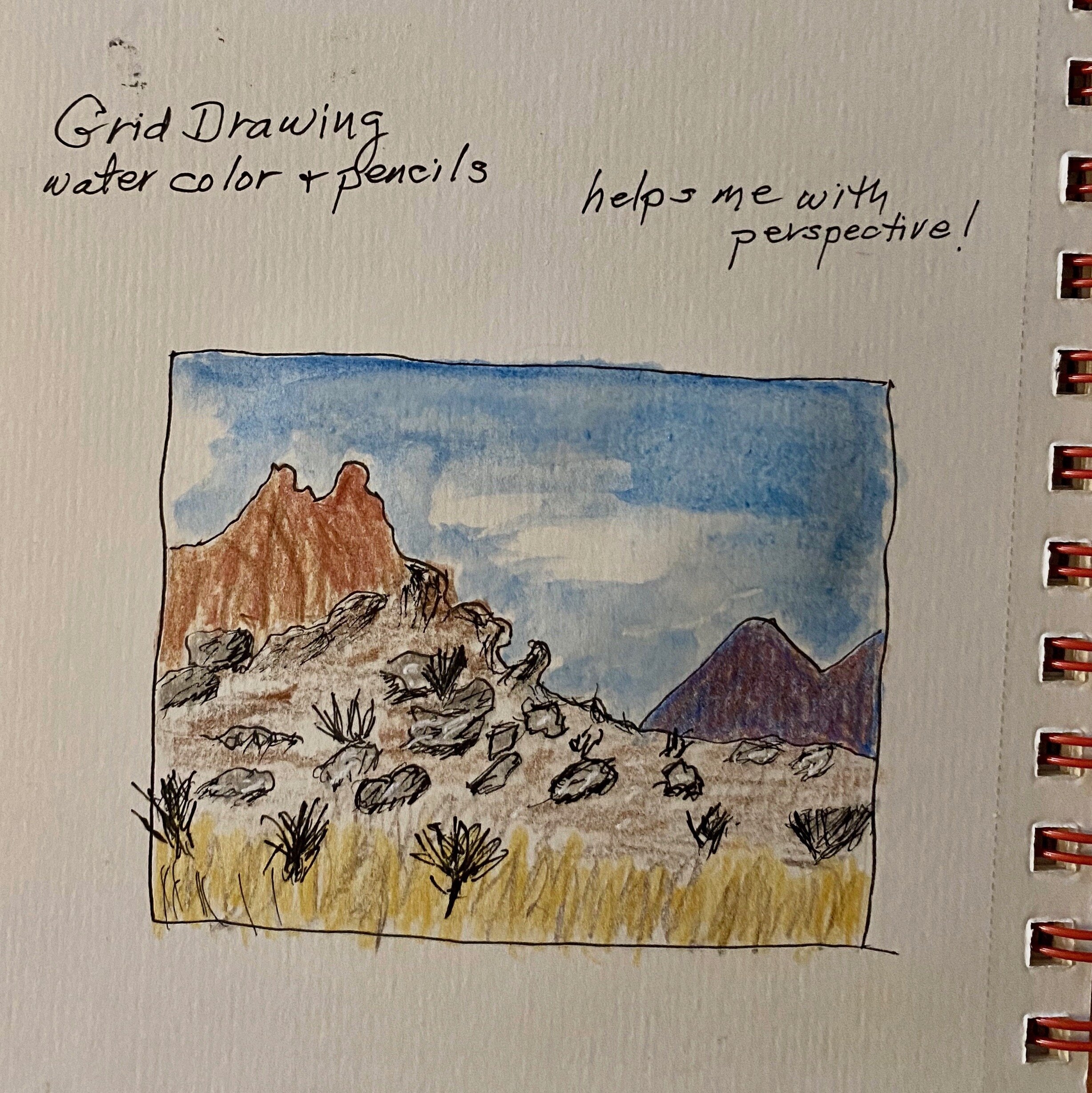
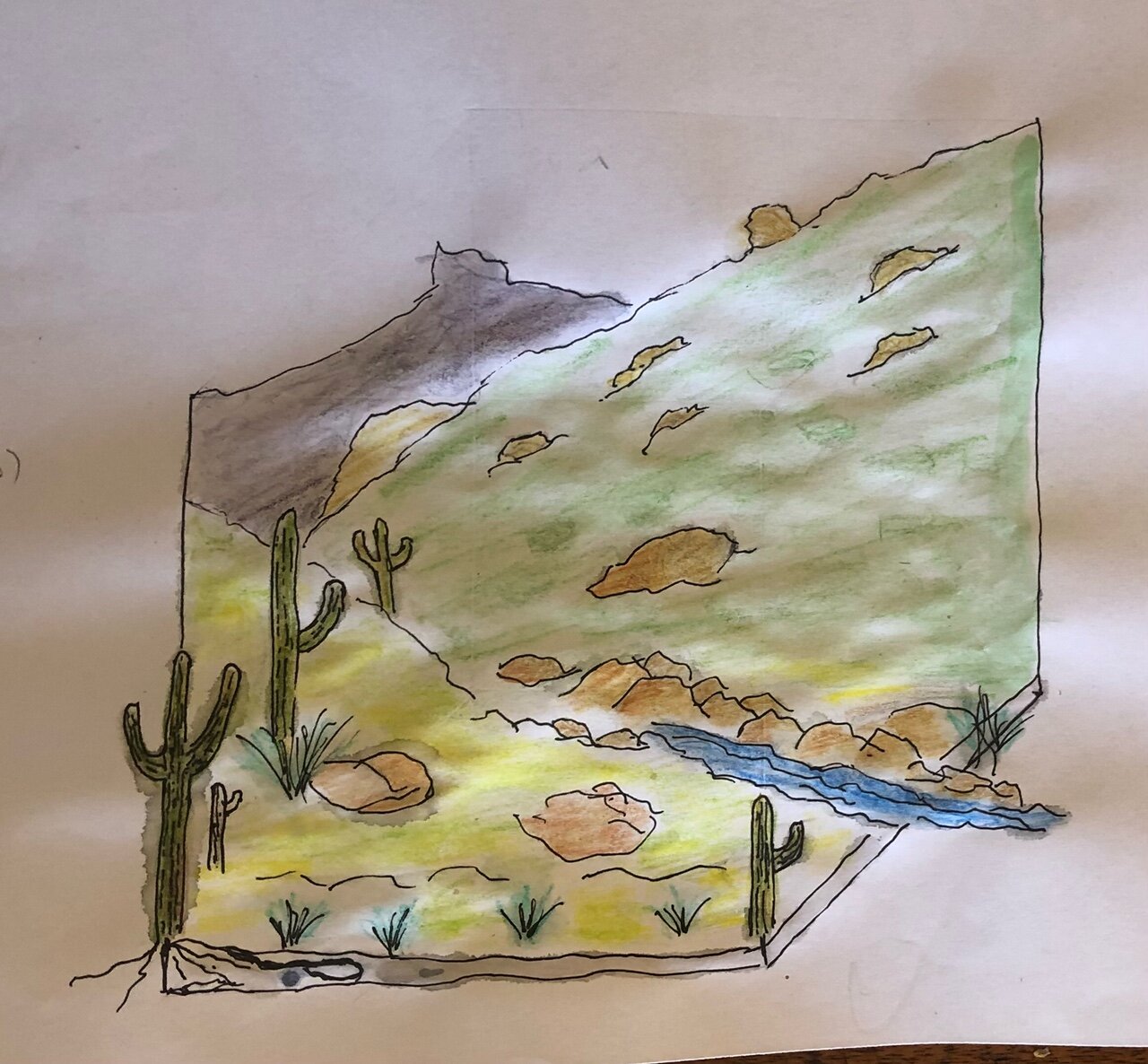
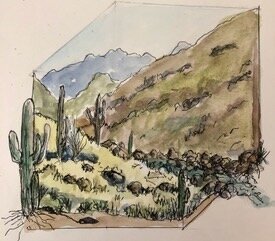
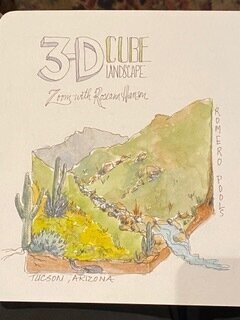
Support free tutorials! Click to contribute to the Tip Jar!
Virtual Field Trip: Unique Grasslands of the World
Join me as we explore three of the world’s grasslands—Australia’s Southern Tablelands in New South Wales, Brazil’s Cerrado, and Alberta’s Southern Prairies—to observe, take notes on, and sketch some well-known animals as well as some lesser-known and fascinating creatures! Sketch along or just observe, I’ll narrate as I go to demonstrate why I choose to focus on what subjects and how to quickly capture them in your field notebooks and nature journals.

